Updated date: 12/05/2025 11:27:13

DTO - Combat cadres are the ones who contribute to creating a new space of values - according to Vice Chairman of the National Assembly Le Minh Hoan.

Vice Chairman of the National Assembly Le Minh Hoan (former Minister of Agriculture and Rural Development) (right cover) and leaders of Chau Thanh province and district visit the product display activities at the Chau Thanh Agricultural Products Festival. Photo: My Nhan
The Story of the Broken Bridge and the Map Keeper
Not long ago, on a business trip to a remote area, I accompanied a young commune official. The road leading to a small village had a rotten wooden bridge, half of which had been washed away by the rain. He stopped, confused, and took out his phone to look at the satellite map.
I asked: "What are you watching?"
He replied: "Yes, I checked to see if people took a shorter detour and could wade across the stream."
Then he opened the population data and said softly: "This village has 38 households, but 12 are elderly and lonely. If they can't go to the market on the other side, we have to calculate how many days of food they need."
Looking at the commune cadre, I don’t just see a cadre. I see a person who keeps a development map. A person who not only remembers the resolution, but also uses the resolution to touch the people’s every step. That is the image I call “a combat cadre”.
Open space, open thinking
The merger of administrative units is not only a matter of reorganizing the apparatus. It is also a big test for the grassroots cadres. When administrative boundaries are blurred, the management space is wider, the population is larger, the problems are more complicated, and expectations are higher. And in that new space, it is impossible to go with old thinking and old ways of doing things.
Many cadres who are used to their own region, their own people, their own “industry” now need to learn how to work in inter-commune, inter-industry, and inter-subject networks. Not only solving work in the commune, but also connecting the whole region to develop. The development space is not just where we stand, but where we look.
New space is not about adding a few dozen square kilometers, but about integration. Integration of ecological values that need to be preserved. Integration of economic opportunities that need to be exploited. Integration of cultural identities that need to be nurtured, and community ties that need to be renewed. To do so, grassroots cadres must understand economics, culture, society, psychology, and human behavior.
We cannot manage a vast future with outdated tools. To do that well, cadres need more than enthusiasm. They also need systematic thinking, integrative skills, critical thinking ability and, most importantly, the humility to continuously learn.
Uncle Ho once reminded: “We must study, must try to study a lot. If we do not study hard, we will not progress. If we do not progress, we will regress.”
combat officer
Resolution officers know the text by heart, but may be confused when meeting an old man asking for directions to the market when the bridge is broken. Field officers not only “know” but also “understand”, not only “understand” but also “act”. Grassroots officers must be action officers, field officers.
Field officers can turn reports into easy-to-understand language for the people, turn administrative maps into living maps of livelihoods, trade flows, and connection bottlenecks, and turn policies into sincere dialogues with the people, where people can listen, give their opinions, and be accompanied.
Uncle Ho once advised: "I advise you not to set up vast programs that sound good but cannot be implemented."
And in the era of big data and artificial intelligence, officials need a new skill: knowing how to read data like reading people's hearts. The grassroots level is the level closest to the people, living in the hearts of the people, working and creating development with the people.
You don’t need to know how to program, but you do need to know how to ask the right questions, use digital maps, and read socio-economic development indexes to know which areas are still struggling, which households need help, which resources are being wasted, and which initiatives are quietly blossoming in the community. We need to deeply understand that artificial intelligence will not replace officials, but officials who do not understand artificial intelligence will be left behind by the people they serve.

Vice Chairman of the National Assembly Le Minh Hoan (former Minister of Agriculture and Rural Development - Secretary of Dong Thap Provincial Party Committee) visited the smart rice farming model at My Dong 2 Agricultural Service Cooperative, My Dong Commune, Thap Muoi District. Photo: My Nhan
Renew yourself to lead the new
The difference between managing a place and creating a space for development is that one is about keeping things stable, the other is about creating positive change. Only positive change can create opportunities to open up new spaces for development, instead of just measuring output.
We cannot expect grassroots cadres to become experts right away. But with a new attitude, ready to step out of their comfort zone, there will be many more people like the young cadre by the bridge that day, who know how to look up maps, listen to people, connect to networks, work on digital platforms, and most of all, put their hearts into every little thing.
Cadres in the field know how to listen to each person, without forgetting the community. Going to the grassroots, I once heard an officer confide: “The reports have data and targets, but when I go down to each hamlet and each house, I see that each person has their own concerns. No two people are the same.”
That’s right. As a cadre, you can’t “copy” the same approach for every target. You have to know how to “choose the right flower for each tree, the right family for each situation.”
Field officers need to understand a simple fact: some people only need to hear a familiar example to understand; some people need to see their neighbors do it before they believe; some people need to be guided step by step so as not to be overwhelmed; some people have failed with previous policies and now need patience to rebuild trust.
Grassroots cadres need to approach real numbers instead of percentages, knowing clearly how many poor households there are in the area, what their specific family circumstances are, where they live, what their means of production are... instead of the figure of the poverty rate being only below 5% or 10%.
That's behavioral psychology, knowing how to design policies according to the path that people actually take, not according to what you think they should take.
If you want people to believe, you have to walk the path with them. If you want people to understand, you have to speak in everyday language. If you want people to do something, you have to create conditions for them to start from the smallest things.
Personalized but not isolated
Personalization does not mean everyone does it on their own. Personalization means understanding each person to lead everyone to join the strength of the community. For a poor farmer who has never grown crops properly, instead of forcing them to meet the standards from the beginning, let them try it on a small vegetable plot, then gradually expand it. Let them see real results and feel real joy. For a household that was deceived by traders and did not want to join a cooperative, instead of blaming them for "lack of cooperation", let them share the story of a similar person who overcame their fear and succeeded. That is when policy is no longer just words, but empathy.
No one can make big changes alone. A practical cadre is someone who knows how to pull each person out of their individualistic mindset, connect each family to the community network, and live together in open community spaces instead of in halls: a corner of the garden, a porch, a clubhouse, a corner of an agricultural extension cafe... The closer the space is to nature, the more open people are.
Grassroots cadres are the ones who instill awareness in people: farming is not just for food, but for a better life together, each household is a link, forming a value chain; each good word and right action is a brick that builds collective trust. The community is not a place where everyone is the same, but a place where people accept differences to go far together.
A practical officer is not someone who has a ready-made solution, but someone who knows how to raise the right issues, ask the right questions at the right time, has the ability to lead by example, and dares to give the initiative back to the community. A practical officer does not impose, but knows how to design behavior and create an environment for people to gradually change.
The "lighter" for the new land
No matter how good a policy is, if it does not enter the hearts of the people, it is just a document. A practical officer needs many things: knowledge, data, skills. But the most important thing is an open heart to see that each person is a world, and the collective aspiration is a river that needs to be guided. We do not manage “population”. We accompany people, each person, each dream, each ability to rise.
People do not remember what chairs we sit on, but only remember those who lit the lamp. The new development space needs cadres who are like small lamps, illuminating every corner of life, every silent hope of the people. If each cadre learns an additional skill, dares to try a new way of doing things, knows how to put themselves in the position of the people, then the resolution will not remain on paper, but live in every heart and belief of the community.
Mr. Le Minh Hoan has been Vice Chairman of the National Assembly since the end of February 2025. He is a member of the Party Central Committee, term XII and XIII; and held the position of Minister of Agriculture and Rural Development for the 2021-2025 term. He was also Chairman of the Provincial People's Committee; Secretary of the Dong Thap Provincial Party Committee. During his time working locally, Mr. Le Minh Hoan was also known as the author of many articles under the pen name "Xich Lo", expressing concerns about local development strategies and the role of farmers in the industrialization period. |
LE MINH HOAN
Source: https://baodongthap.vn/chinh-tri/tu-can-bo-nghi-quyet-den-can-bo-thuc-chien-131387.aspx


![[Photo] Buddha's Birthday 2025: Honoring the message of love, wisdom, and tolerance](https://vphoto.vietnam.vn/thumb/1200x675/vietnam/resource/IMAGE/2025/5/12/8cd2a70beb264374b41fc5d36add6c3d)

![[Photo] Prime Minister Pham Minh Chinh works with the Standing Committee of Thai Binh Provincial Party Committee](https://vphoto.vietnam.vn/thumb/1200x675/vietnam/resource/IMAGE/2025/5/12/f514ab990c544e05a446f77bba59c7d1)
![[Photo] Prime Minister Pham Minh Chinh starts construction of vital highway through Thai Binh and Nam Dinh](https://vphoto.vietnam.vn/thumb/1200x675/vietnam/resource/IMAGE/2025/5/12/52d98584ccea4c8dbf7c7f7484433af5)



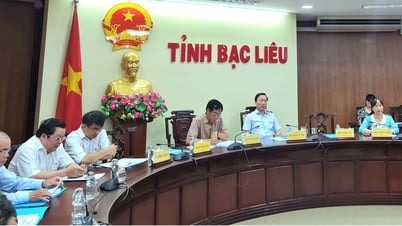
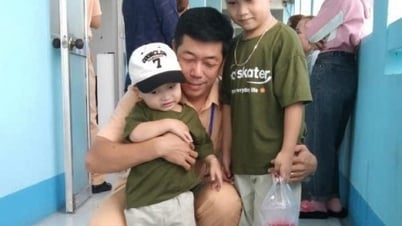
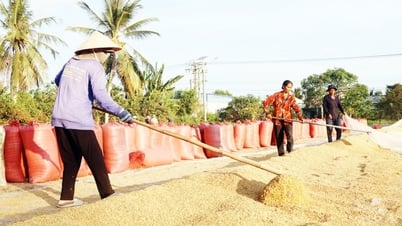
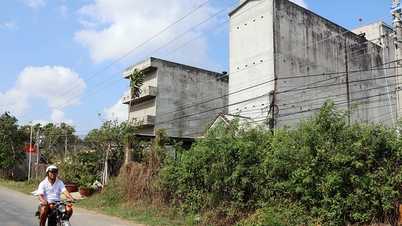
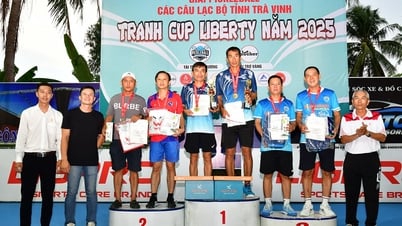




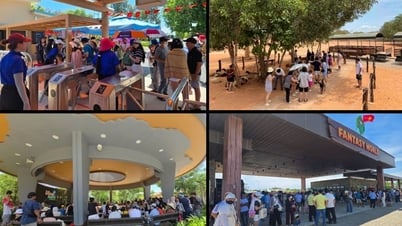



















































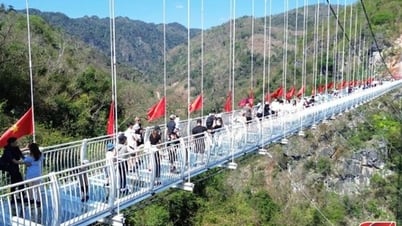

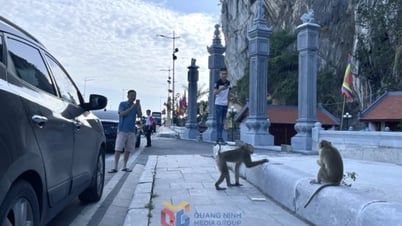

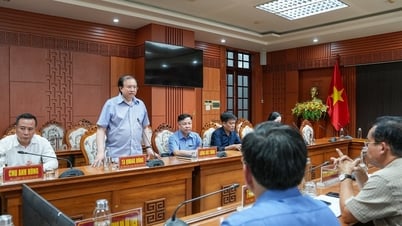
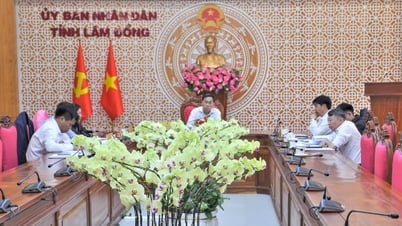

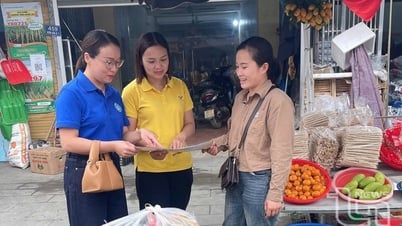

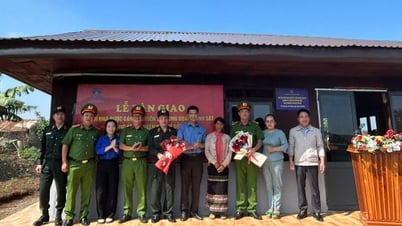
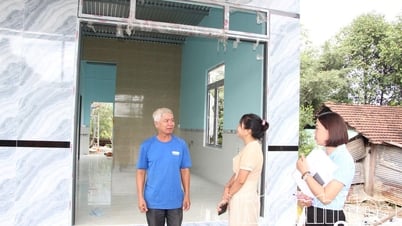











Comment (0)